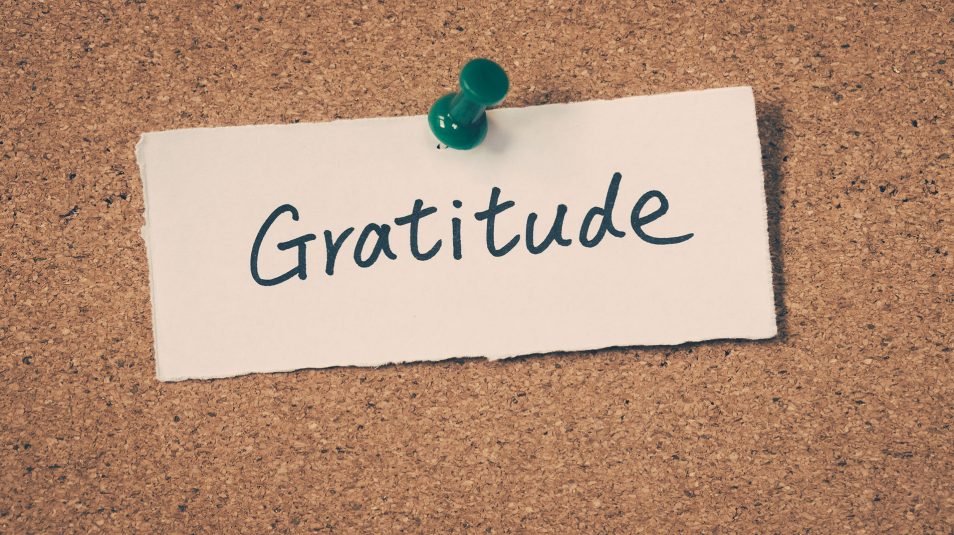Gratitude at Workplace

Team Kritikalhire
May 16th, 2023
Publilius Syrus referenced leadership over two thousand years ago when he wrote, “Anyone can hold the helm when the sea is calm.” Calm is never constant, and leaders at all levels often get tested at various times. While some rise to meet the challenges, others are floundering and demoralized.
According to Alain Hunkins, Gratitude and appreciation are essential tools in the leader’s toolkit. He further adds most leaders understand that it’s important to show appreciation. As per a Glassdoor survey:
- 68% of employees say their boss shows them enough appreciation; however, 53% admit they’d stay longer at their company if they felt more gratitude from that boss.
- 81% of employees report they’re motivated to work harder when their boss shows appreciation.
Appreciation doesn’t just impact retention; it also affects performance.
Amy Gallo, (a contributing editor at Harvard Business Review), in her article Giving Thanks at Work, an HBR Guide’ writes, “We all want to work in a place where people are polite, considerate, and kind, and expressing appreciation to your colleagues is an integral part of the building that sort of culture.
People who feel appreciated are also better team players. Research by Robert A. Emmons, professor of psychology at UC Davis and one the world’s leading researchers on Gratitude, found that “people with a strong disposition toward Gratitude can be empathic and to take the perspective of others. People in their social networks rated them as more generous and helpful.”
Emmons also found that gratitude “can lower blood pressure, improve immune function and facilitate more efficient sleep. Gratitude reduces lifetime risk for depression, anxiety, and substance abuse disorders, and is a key resiliency factor in preventing suicide.”
How to Express Your Gratitude
Amy Gallo explains what you say - and how you say it - matters. A simple “thanks” is a start, but given how many of us sign off every email with that word, its impact has probably waned. Instead, you want to be specific about what you’re grateful for, explain why it was meaningful, and point out what you appreciate about the other person.
When should you express your Gratitude to someone? The short answer is: now. You want to thank you as soon as possible after the action that prompted the positive impact, but it’s never too late.
You can also send a Slack message, an email, or a text. Amy Gallo appreciates these forms because she has a folder in her email where she keeps compliments or thank you notes (and goes through them when she is having a bad day). But you might want to consider handwritten note, which shows that you put in extra effort to share what was on your mind. And you can also hop on the phone or a video call to say thanks, though that puts pressure on the recipient to react to your Gratitude immediately.
Regardless of the medium you settle on, please spend a few moments thinking about what you’re grateful for and how their actions affected you. This will allow you to be specific.
Alain Huskins recommends that you practice deliberate Gratitude by practicing the below three steps if you want to become a more appreciative leader;
- Look for what’s working well: According to human tendency, negativity creeps in quickly; sometimes, we must go against nature and think positively.
- Connect emotionally to what’s working well: Gratitude isn’t a concept; it’s an experience. Take time to savor the moment, and notice what minute things contribute to the development of Gratitude.
- Express your feeling externally: Gratitude multiplies when it moves from thought to action. Express Gratitude personally; it lets other people feel they belong and is necessary while working in a corporate setup.
Alain concludes that outstanding leadership is a relationship between two human beings: A leader and one who chooses to follow. When we express Gratitude, the brain produces oxytocin, a hormone essential to bonding and association. When you show Gratitude to those you lead, they’ll become more bonded to you. More importantly, it works another way around, too; expressing Gratitude doesn’t only benefit the recipient; it helps the giver just as much.
Amy Gallo also encourages that if you’re a manager, you want to express your Gratitude to your direct reports and encourage others to do so. Be a role model.
References:
I. Alain Hunkins (Nov 22, 2020) The Deliberate Leadership Practice of Giving Thanks (https://www.forbes.com/sites/alainhunkins/2020/11/22/the-deliberate-leadership-practice-of-giving-thanks/?sh=24c4e9a15a93)
II. Amy Gallo (Nov 24, 2021) Giving Thanks at Work: An HBR Guide (https://hbr.org/2021/11/giving-thanks-at-work-an-hbr-guide)
Subscribe
The best recruitment industry articles served daily, directly in your inbox.




